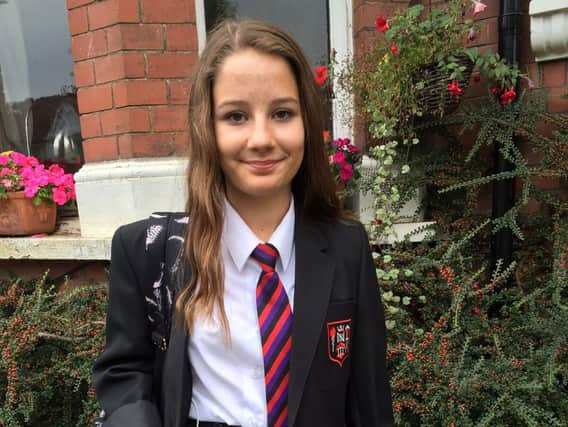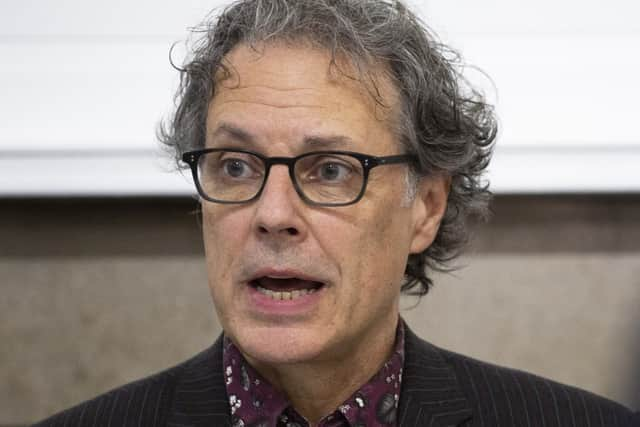Who was Molly Russell? Schoolgirl's suicide prevention advocate father Ian Russell honoured with MBE


Molly Russell's father has said that the 14-year-old would have felt immense pride in her legacy of suicide prevention, after he was honoured with an MBE in the New Year Honours list.
Ian Russell, aged 60, has been commended for his contributions to child safety on the internet. He established the Molly Rose Foundation, a charity dedicated to suicide prevention in her memory, and played a pivotal role in shaping the Online Safety Bill.
Advertisement
Hide AdAdvertisement
Hide AdRussell told the PA news agency: “I’m here for the work that not just me but lots of people have done in setting up the Molly Rose Foundation, the charity that we formed after my youngest daughter ended her life in November of 2017, in the hope of preventing such tragedies in the future.”
On what Molly would have made of his MBE, he said: “Molly was quite content to get on stage and take part in school plays but she was a quiet person, she didn’t like the limelight, so I think she would have found this a bit strange.
“But because she was such a caring person, I think she would have been tremendously proud of being able to help people who may be struggling with their mental health and may be beginning to have thoughts about suicide.
“If she thought she could help those people live long and stay strong, she’d be very proud indeed.”
Advertisement
Hide AdAdvertisement
Hide AdBut who was Molly Russell? Here is everything you need to know about her.
Who was Molly Russell?


Last September, a coroner ruled that schoolgirl Molly, from Harrow, north-west London, died from “an act of self-harm while suffering from depression and the negative effects of online content” in November 2017.
Molly Russell was a young British girl whose tragic story brought attention to the complex interplay between mental health, social media and societal influences.
Born in 2002, Molly took her life at the age of 14 in 2017, sending shockwaves through her family and sparking a larger conversation about the impact of online content on vulnerable individuals.
Advertisement
Hide AdAdvertisement
Hide AdMolly's story gained widespread attention after her father discovered distressing material on her Instagram account following her death. This material included posts related to depression, self-harm and suicide, which led her family to believe that the platform might have played a significant role in influencing her state of mind.


Ian Russell became an advocate for stricter regulations regarding online content after discovering that Instagram's algorithms had led Molly to disturbing material, potentially exacerbating her mental health struggles. This revelation shed light on the darker corners of social media and its potential impact on young, impressionable minds.
In the aftermath of Molly's death, her family lobbied for increased awareness of the harmful content circulating on social media platforms and urged companies like Instagram to take more responsibility for the material they host.
Their efforts contributed to a broader societal discussion about the ethical responsibilities of tech giants in safeguarding the mental well-being of their users, particularly young individuals.
Advertisement
Hide AdAdvertisement
Hide AdThe story of Molly Russell prompted a reassessment of how social media platforms curate and deliver content, especially concerning sensitive topics like self-harm and suicide.
It highlighted the need for better algorithms to identify and limit the exposure of potentially harmful content, while also emphasising the importance of parental guidance and support for young people navigating the digital landscape.
The repercussions of Molly Russell's death extended beyond her immediate family, resonating with parents, mental health professionals, policymakers, and the public at large.
Her story served as a stark reminder of the vulnerabilities that exist in the digital age and the profound impact of online content on mental health, particularly among impressionable youth.
Advertisement
Hide AdAdvertisement
Hide AdSince Molly's passing, there have been increased calls for online platforms to implement stricter guidelines and more effective monitoring systems to prevent the proliferation of harmful content.
Social media companies have taken steps to address these concerns, employing AI-driven algorithms and hiring content moderators to identify and remove such material.
Comment Guidelines
National World encourages reader discussion on our stories. User feedback, insights and back-and-forth exchanges add a rich layer of context to reporting. Please review our Community Guidelines before commenting.
